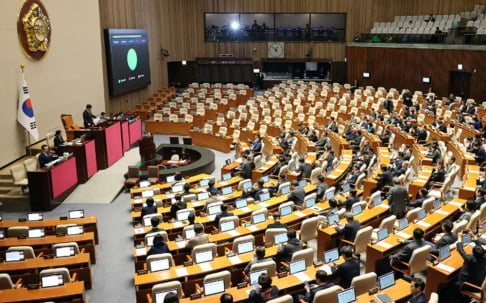
No one could have predicted just how vast K-Pop would spread globally. Yet here we are in 2025, and K-Pop has become an undeniable global phenomenon. Groups are consistently heading out on international tours, performing not only in the United States and across Asia, but also expanding their reach into South America, Europe, and beyond. However, with the surge in these concerts and tours, fans have started questioning the industry's definition of what "global" truly means, wondering if K-Pop favors some countries and regions over others.
With warmer seasons approaching, fans are seeing an increasing number of global tour announcements from groups like ATEEZ, ENHYPEN, and many others. Yet many international fans have voiced disappointment over repeatedly seeing certain regions omitted from these supposed "World/Global" tours. Typically, idols often stick to familiar markets such as the United States, Japan, and their domestic venues in South Korea. Given this predictable pattern, fans are beginning to question whether labeling these events as "global tours" is accurate, suggesting they might as well be called "U.S. Tours" or "Japan Tours."
This geographical limitation poses a significant dilemma for international fans. While these fans are eager to witness their favorite idols perform live, the reality is that many simply cannot afford the extensive travel and financial burden associated with attending concerts abroad. It's worth noting that without the enthusiastic support and interest of these global fans, many idols wouldn’t have achieved the level of international recognition and success they currently enjoy.
Adding further complications to the situation, we've recently seen unexpected cancellations of K-Pop concerts and appearances due to visa problems and local circumstances. For example, KARD announced the cancellation of their 'New Era' North America tour specifically due to visa issues. Similarly, Girls' Generation's Taeyeon had her solo concert in Japan abruptly cancelled, BTS j-hope’s highly anticipated U.S. television appearance was called off due to unforeseen local issues, and rookie group Xikers had to cancel their Asia tour owing to similar visa complications. This alarming trend of cancellations not only disappoints eager fans but also disrupts artists' momentum and plans.
So here's the real dilemma fans and industry insiders alike must consider: Is this the beginning of a broader trend of frequent cancellations and limited geographic coverage for K-Pop tours? And if so, how might these issues affect the global market for K-Pop in the future, impacting both fans' experiences and idols' international growth? The industry and fans must navigate these challenges together to ensure that K-Pop truly remains a global phenomenon accessible to everyone.
SEE ALSO: “Answer” becomes ATEEZ’s 4th MV to hit 100 million YouTube views
 SHARE
SHARE













































